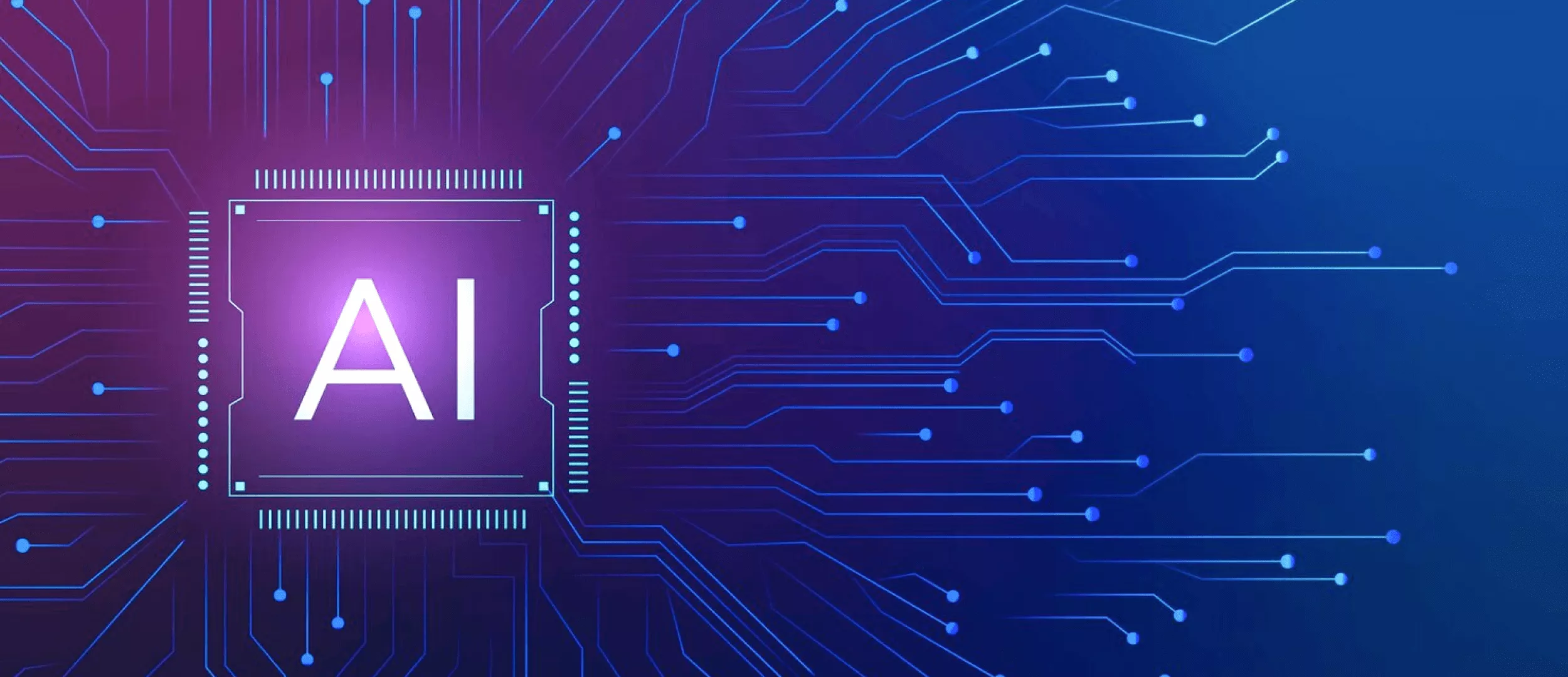
Artificial intelligence app development is revolutionizing how we deliver new software, particularly in mobile app development. With the ability to analyze vast amounts of data and make decisions based on that data, AI is transforming mobile apps into more intelligent, responsive, and personalized experiences for users. From chatbots to predictive maintenance and language translation, AI is enabling mobile apps to become more intuitive and user-friendly, showcasing the immense potential of AI in mobile applications for the future.
The Role of AI in App Development
Artificial Intelligence (AI) is currently being used in numerous industries, such as healthcare, retail, finance, real estate, insurance, and others. The potential for this technology is boundless across all business sectors, and artificial intelligence application development is certainly no exception.
AI can be used to gather user data and create personalized experiences for each user. For example, an AI-powered app can learn users' preferences and suggest content, products, or services tailored to their needs. AI-powered chatbots and virtual assistants can be integrated into mobile apps to provide customer support, answer user questions, and perform other tasks without human intervention, highlighting the benefits of AI in mobile app development.
Want a web app that does more?
Let's build a solution that's smart, sleek, and powerful.
Alina
Client Manager

AI can be used to analyze user behavior and predict user actions, helping mobile app developers make data-driven decisions about app features, design, and functionality. AI-powered voice recognition technology can be used to enable voice commands and control within mobile apps, making them more accessible and user-friendly. AI can be used to recognize and classify images and objects within mobile apps, enabling features like augmented reality and object identification, demonstrating the power of artificial intelligence in mobile applications.
Benefits of AI in app development
AI has several benefits in app development:
- Automation: AI-powered tools and algorithms can automate several time-consuming and repetitive tasks, enabling developers to focus on more critical areas of app development.
- Improved Efficiency: AI enables mobile apps to perform tasks faster than humans in most instances. Whether it's processing data, responding to customer queries, or managing workflows, AI provides businesses with the means to enhance their efficiency.
- Personalization: AI can help create personalized app experiences based on user data and behavior, leading to higher user satisfaction and engagement.
AI has the potential to enhance automation and facilitate intelligent interactions for not only web applications but also mobile ones. From chatbots and digital assistants to personalized experiences, the possibilities of what AI can accomplish in a mobile app are vast.
What are some examples of AI-powered features in mobile apps?
- Chatbots and virtual assistants: AI-powered chatbots and virtual assistants can be integrated into mobile apps to provide customer support, answer user questions, and perform other tasks without human intervention. Examples of apps that use AI-powered chatbots and virtual assistants include Slack, Facebook Messenger, and Apple's Siri.
- Image and object recognition: AI can be used to recognize and classify images and objects within mobile apps, enabling features like augmented reality and object identification. Examples of apps that use AI-powered image recognition include Google Lens, Snapchat, and IKEA Place.
- Voice recognition: AI-powered voice recognition technology can be used to enable voice commands and control within mobile apps, making them more accessible and user-friendly. Examples of apps that use AI-powered voice recognition include Amazon Alexa, Google Assistant, and Apple's Siri.
- Predictive analytics: AI can be used to analyze user behavior and predict user actions, helping mobile app developers make data-driven decisions about app features and functionality. Examples of apps that use AI-powered predictive analytics include Waze, Google Maps, and Spotify.
AI-Powered Mobile App Features
From personalized content to predictive analytics, voice recognition, chatbots, and image recognition, AI-powered features have revolutionized how we interact with mobile apps, illustrating the impact of AI in mobile applications.
Personalized content
The technology behind personalized content involves machine learning algorithms that analyze user data such as browsing history, search queries, and purchase history. These algorithms can then use this information to make recommendations for content that the user is likely to be interested in.
For example, a music streaming app can use personalized content to create custom playlists based on a user's listening history and preferences. Similarly, a news app can use personalized content to provide news stories that are relevant to the user's interests and location.
Predictive analytics
Predictive analytics is an AI-powered feature in mobile apps that involves using machine learning algorithms to analyze user data and predict future behavior or outcomes. This technology is used in various mobile apps, including e-commerce, healthcare, and finance.
For example, an eCommerce app can use predictive analytics to recommend products to users based on their previous purchases, browsing history, and search queries. A healthcare app can use predictive analytics to monitor patients' health and detect potential health issues before they become serious.
Voice recognition
Voice recognition is an essential aspect of artificial intelligence (AI) in mobile app development. It allows users to interact with their mobile devices using their voice, which is more convenient and faster than typing or tapping. Voice recognition technology has been around for some time, but recent advancements in machine learning and natural language processing (NLP) have made it more accurate and responsive.
Chat Automation
In the highly competitive mobile application market, delivering a seamless user experience and providing excellent customer support are crucial. However, having a team of agents available 24/7 can be costly, particularly when many inquiries can be answered easily.
This is where AI-powered chatbots can be beneficial. These intelligent tools allow your mobile application to automate the process of responding to customer queries using natural language processing. The system simply decodes the inquiry, retrieves the relevant information, and conveys it to the user in the most contextually appropriate way.
AI-based chatbots are among the most commonly used artificial intelligence applications, mainly because they can significantly reduce operational costs for businesses. Following Insider Intelligence, adopting chatbots could save the banking, healthcare, and retail sectors $11 billion annually by 2023.
Image recognition
This technology can be used in a wide range of mobile apps, including social media, eCommerce, and healthcare. The process of image recognition involves training machine learning algorithms to recognize specific patterns or features in images.
For example, an eCommerce app can use image recognition to allow users to search for products by uploading an image. The app can analyze the image and identify the product, making it easier for users to find what they are looking for. A healthcare app can use image recognition to analyze medical images, such as X-rays or MRIs, and identify potential health issues.
AI's Impact on Mobile App User Experience
Artificial intelligence (AI) has had a significant impact on mobile app development, it can help generate images and graphic resources for the application, enhancing interaction, and providing seamless performance.
Boost Automation while Retaining Human Inputs
Artificial Intelligence (AI) assists humans in making more informed decisions. AI has decreased the need for human input in analysis. AI-powered devices and tools reduce the need for human input while utilizing the best outcomes that can benefit humanity.
However, it's important to note that AI can also be designed to work collaboratively with humans, rather than replace them entirely. By incorporating human inputs, such as feedback and oversight, the technology can be fine-tuned to better align with human needs and values. In this way, AI can enhance automation while still retaining the unique abilities and perspectives of human beings.
Improved user engagement
AI-powered features like personalized content and recommendations have improved user engagement by providing a more tailored and customized experience. By analyzing user data and behavior, AI algorithms can suggest content and features that are relevant and interesting to individual users, keeping them engaged and using the app for longer periods.
Intelligent and Personalized Recommendations
After launching their app, to increase website traffic and sales, many businesses take into account user preferences. If your app is focused on a specific domain, you can send personalized recommendations to users based on their previous browsing behavior. By analyzing user data, AI-powered tools can provide intelligent suggestions for products or services that the user may be interested in, thereby increasing the likelihood of engagement and conversions.
Challenges of AI Integration in Mobile App Development
There are several challenges associated with integrating AI into app development.
Complexity of AI algorithms
AI algorithms are complex and require specialized knowledge to maintain and implement. App developers may need to hire AI experts or collaborate with third-party AI providers to ensure their app's features are working effectively.
Data privacy concerns
There are privacy concerns associated with AI-enabled apps, as they often require the collection and storage of large amounts of user data. To mitigate these concerns, app developers must ensure that the collection and use of user data are transparent and follow all applicable privacy regulations. Addressing these challenges requires careful planning and implementation to ensure that the benefits of AI in mobile app development outweigh the associated costs and risks.
Cost
One of the key challenges of integrating AI into mobile app development is the associated cost. Developing AI-powered apps requires complex algorithms and a significant amount of development time, which can result in higher expenses.
Future of AI in Mobile App Development
AI is changing the way mobile apps are developed, designed, and used. With the advancements in AI technology, mobile app developers are exploring new ways to integrate AI into apps.
Integration of AI and IoT
The integration of AI and IoT is a rapidly growing area of development that has the potential to revolutionize industries such as manufacturing, healthcare, and logistics. IoT devices generate vast amounts of data, and AI can be used to analyze and interpret this data, enabling devices to become more intelligent and responsive.
- Predictive maintenance: AI can be used to analyze data from IoT devices to predict when maintenance is required, helping to prevent breakdowns and improve operational efficiency.
- Autonomous systems: AI can be used to enable IoT devices to make decisions and take actions without human intervention, such as self-driving cars and drones.
- Smart homes and buildings: AI can be used to control and optimize energy consumption in smart homes and buildings, improving energy efficiency and cost reduction.
- Healthcare: AI can be used to monitor patients remotely using IoT devices, enabling early detection of health issues and improving patient outcomes.
- Supply chain management: AI can be used to track and analyze data from IoT devices in supply chain management, helping to optimize inventory levels, reduce costs, and improve delivery times.
The integration of AI and IoT is still in its early stages, but it has the potential to transform many industries and improve our daily lives. As more IoT devices come online and AI technology advances, we can expect to see even more exciting developments in the future.
The development time for integrating AI can vary greatly depending on the complexity of the project and the level of expertise of the team involved.
Increased use of natural language processing
The increased use of natural language processing is transforming how we interact with technology, making it more intuitive and user-friendly. Some of the ways NLP is being used to improve mobile app development include:
- Chatbots: Chatbots use NLP to understand and interpret written language, enabling them to have natural language conversations with users. Mobile app developers can use chatbots to provide customer support, answer user questions, and even perform transactions.
- Language translation: It can translate text from one language to another in real-time. Mobile app developers can use this technology to create multilingual apps that can be used by people around the world.
- Sentiment analysis: NLP can be used to analyze social media posts, reviews, and other forms of user-generated content to determine the sentiment of the text. Mobile app developers can use this information to improve their apps and address user concerns.
Can AI be used for mobile app testing and quality assurance?
Artificial intelligence offers powerful capabilities for mobile app testing. It can be leveraged to automate many testing tasks. This improves testing efficiency and accuracy. AI can run automated tests repeatedly without human intervention. AI test scripts can easily execute large test suites. They can thoroughly validate app functionality across different devices and conditions.
Using AI, apps can be tested for performance under high loads and stress. AI can simulate real-world usage scenarios at massive scales. This identifies performance bottlenecks before release. Visual AI lets apps be tested for UI and UX issues automatically. AI computer vision scans screens and interface elements. It detects cosmetic defects or deviations from design specs. AI techniques like machine learning can analyze app data for anomalies. This enables intelligent test case selection and prioritization. ML helps focus testing efforts on the most critical areas.
Artificial intelligence in a mobile app brings speed, scale, and intelligence to mobile app testing processes. Yet, there are pros & cons of artificial intelligence in mobile app development. There are some data privacy concerns and ethical considerations. While not replacing human testers completely, AI acts as a force multiplier. It allows faster releases with higher-quality apps.
Read this FAQ section if you want to know more about artificial intelligence in mobile app development and how they work together.
FAQ
What is Artificial Intelligence in Mobile Apps?
Artificial intelligence in mobile apps is computer software that can "think" and "learn" like humans. AI makes apps smarter and more helpful. For example, it allows virtual assistants in apps to understand voice commands. It also enables apps to recognize objects in photos and provide relevant information. Many apps use machine learning, a type of AI. ML lets apps automatically improve based on experience and data. For instance, a fitness app could use machine learning to give customized exercise recommendations for each user. In mobile games, AI controls the actions of opponents or characters you play against. AI also helps with targeted advertising in apps. Ads are customized based on your interests and activities. Many popular apps, like Gmail, Maps, and virtual assistants, use AI too. Artificial intelligence for mobile app development brings human-like capabilities to enhance mobile apps. It allows apps to adapt, perceive their environment, learn, solve problems, and deliver intelligent features and experiences. AI represents a major advancement in mobile technology.
How to Utilize Artificial Intelligence in Mobile App Development?
There are several ways of how to use artificial intelligence in mobile apps Machine Learning. This AI technique allows apps to learn and improve from data. Apps can recognize patterns and make predictions. Examples are recommendation engines and voice assistants. Computer Vision. This AI can identify and process images and videos in apps. It enables facial recognition, object detection, and augmented reality features. Natural Language Processing. NLP allows apps to comprehend and reply to human language and voice instructions. This AI capability enables chatbots and virtual assistants to function within apps. Predictive Analytics. By examining user data, AI can forecast user needs and behaviors. Apps can then deliver personalized content, offers, and messages tailored to individual users. For artificial intelligence in mobile app development and implementation, developers first gather training data in the required domain. They then build machine-learning models using this data. Mobile apps integrate trained models. Using AI in apps delivers intelligent features and smooth user experiences. Developers need skills in data science and ML to use AI effectively.
What ethical considerations should be taken into account when incorporating AI into mobile apps?
Here are some key ethical considerations that should be taken into account. Privacy and data protection. AI systems often analyze and collect vast amounts of user data. Developers must ensure proper data privacy and security measures are in place. This is relevant to any industry. For example, artificial intelligence in healthcare mobile app is heavily regulated. Users should be made aware of what data is being collected and how it will be used. Clear consent should be obtained. Personal data must be encrypted. Access should be restricted to protect against breaches. Bias and fairness. Developers should audit their training data and models to detect and mitigate any inherent biases before deployment. Transparency and accountability. The decisions and recommendations made by AI should be explainable and transparent to users. There should be human oversight and the ability to override incorrect AI actions when needed. Clear accountability measures must be established in case of AI system failures or misuse. Control. Although AI can automate tasks. Humans should stay in control and have the option to disable AI features. AI should be designed to assist and augment humans, not replace human decision-making entirely.
Conclusion
.Artificial Intelligence (AI) presents numerous opportunities for innovation in the mobile app industry, making it the wave of the future in artificial intelligence app development. As AI advances, user interactions with app services and products evolve, leading to a more personalized user experience.
The expanding role of AI in mobile apps has demonstrated its value in terms of business growth and user engagement. By leveraging AI, mobile apps can deliver more sophisticated and efficient services, providing users with a more seamless and intuitive experience. The potential benefits of AI in mobile app development are vast and varied, making it a powerful tool for businesses looking to enhance their app offerings and stay ahead of the competition, particularly in AI-integrated mobile app development.
If you want to create a mobile app that uses AI, Stfalcon can help. We are experts at using AI for artificial intelligence in big data commercial apps mobility and search. Our team knows the latest AI technologies for mobile app development. We can help identify the most appropriate use case for AI within your mobile app, taking into consideration your business goals, target audience, and available data. Whatever your AI needs, Stfalcon has the right skills.
Our developers can ensure seamless integration of AI with your existing systems and mobile app architecture. To get started, just contact us. Don't miss out on the AI revolution in artificial intelligence application development.



